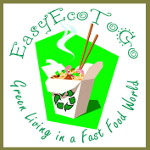Good Science Books for Kindergarten Aged Children
>> Saturday, June 26, 2010
I am a science major myself so I naturally encourage my children's interest in science. At this point, we largely explore it through interacting with nature. They also love doing occasional science experiments for kids- we often get ideas from her kids National Geographic magazine. I used to volunteer, in college, to do science experiments at a local elementary school. Kids love seeing how things work and I love helping them develop and explore their natural curiosity. 
This is a guest post by Vicki M. Thompson on the subject.
Curiosity about science is something to develop and/or encourage in kids. As in a lot of things, an early start, specifically in kindergarten, is a great start. To get the young student having fun and interacting with science, here are some books that should point him or her the right direction or may serve as a teacher’s guide to science fair projects.
Here are 5 good books that should adequately point a young, budding scientist in the right direction:
1. The Everything Kids Science Experiments Book (Tom Robinson)
This introduces your kindergartner to the scientific method, which they'll use to conduct interesting experiments:
- role of the chlorophyll and the seasons in the life and color of leaves
- chemical reactions in cleaning pennies
- how the seesaw operates, factors that play in the colors of light
- acid rain, the seasons
- the five senses, action, and reaction
2. Hands-On Physics Experiments (Activity Book, Grades K-2, by Cherie Winner, illustrations by Gary Mohrman)
Aimed at teachers, but parents/mentors can use this to point a kindergartner to promising science fair projects. Experiments cover properties of objects and materials; position and motion of objects; and light, heat, electricity, and magnetism. The book's a bit tricky to find, but it's listed in teachersparadise.com ($10.77).
3. Einstein's Science Parties: Easy Parties for Curious Kids (Shar Levine and Allison Grafton)
Fun activities that give budding scientists good foundation. Exploring fossils (three types) and dinosaurs (different kinds) and working with experiments that can be eaten should hold their interest. Not to mention make kids' parties educational. Paperback at Amazon ($12.95), hard cover at Jossey-Bass (print on demand, 3-5 days).
4. The Everything Kids Nature Book (Kathiann M. Kowalski)
Create clouds, make waves, defy gravity. Activities to excite the outdoorsy kid. Add science to forest hikes and campouts by investigating, say, the details in coniferous forests or the moss on the forest floor; not all of science is inside a lab. Amazon carries this title ($7.95).
5. Experiments in Science: How Does It Work? (David Glover)
Boasts of experiments involving the simple circuit, wind and water forces, light and shade, and tracking sounds. After each experiment, there is useful information to help the young scientist understand the result/s. Amazon, $21.99.
While kindergarten-age kids should be encouraged to explore to feed their scientific curiosity, it’s important to keep in mind that their safety is ensured. Adult supervision is especially necessary when the experiments involve chemicals, sharp objects, and other materials that might cause injury. Guidance and encouragement should go a long way. A brilliant scientist might just be some years and science fair projects away.
You may also like to read Tips for Healthy School Lunches .

























 Young Living Essential Oils and Supplements
Young Living Essential Oils and Supplements
2 comments:
thanks my five year old really loves science!
This is fantastic! Thanks so much for putting this together. I'm bookmarking this and fully intend on referring to this list when planning our science curriculum (for homeschool)!
Post a Comment